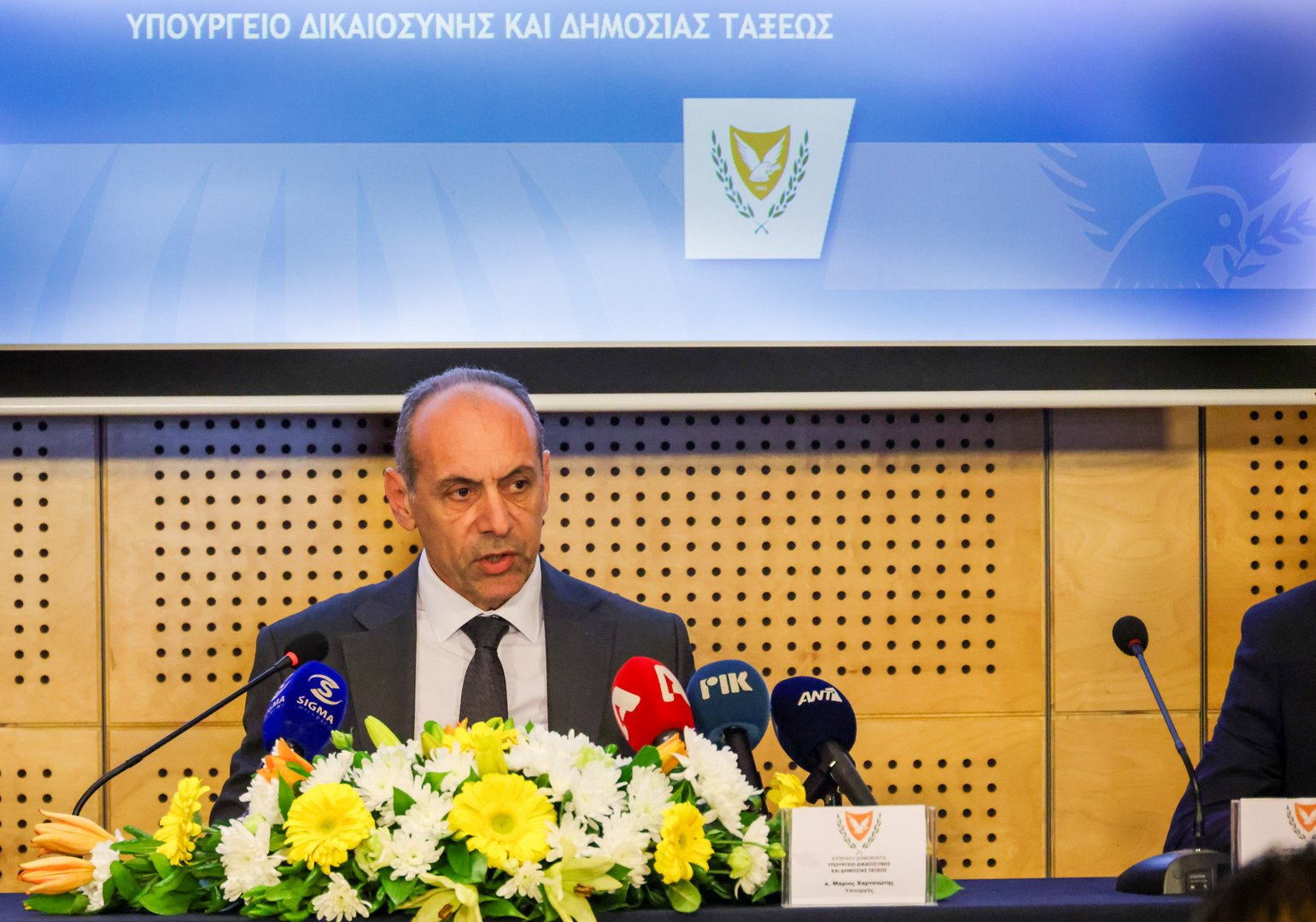Justice Minister Marios Hartsiotis on Thursday attacked claims made by United Nations High Commission for Refugees (Unhcr) spokeswoman Emilia Strovolidou over alleged pushbacks of migrant boats in Cypriot territorial waters, saying she should “tell the police if she has information”.
Both Hartsiotis and Strovolidou appeared on CyBC radio on Thursday morning, with Strovolidou speaking first, saying the Unhcr had been informed that migrants on three boats had been pushed back into Syrian territorial waters last week.
She said the boats were “near the Larnaca port” when they were turned back by the Cypriot police, and that the Unhcr understood that “those on board were not allowed to disembark on land, nor to access asylum procedures”.
“This needs to be investigated by independent organisations to ensure the application of the relevant laws regarding the rights of refugees and asylum seekers,” she said.
When Hartsiotis appeared on the show, he spoke of how there are often “exaggerations and allegations” made regarding the Republic of Cyprus’ treatment of arriving migrants, before turning his attention to Strovolidou.
“Strovolidou, since she has so many details and knows so much, is welcome to make an official complaint to the police so that we can all be enlightened, given that our information was clear and we distinguished what had happened in each and every episode,” he said.
He added that the justice ministry’s position on the matter was that the three boats which the Unhcr had said had been pushed back, were in fact located by the police in Syrian territorial waters at the time and were warned not to proceed towards Cypriot waters.
“The Republic of Cyprus legally exercises its sovereign rights to monitor and guard its maritime borders, and they are borders, as this is a state with laws. It also provides humanitarian assistance to people in danger when they are inside those territorial waters,” he said.
Their tit-for-tat on the radio comes a day after statements were released on the matter, with the justice ministry releasing a joint announcement alongside the defence ministry and the migration deputy ministry to deny any wrongdoing.
They denied claims that the Cypriot police had used firearms or water cannons, and that they had pushed migrants back, describing the accusations as “unacceptable”.
That statement came after the Unhcr had said three boats carrying around 80 Syrian nationals, including women and children, had reached Cyprus but were forcibly returned to Syria by Cypriot authorities.
The Unhcr had stressed that returning would-be asylum seekers to potentially dangerous locations, known as “refoulement”, is a violation of international law, and said Syrian nationals should not be returned to their country in light of the ongoing political instability and recent violence experienced in the country.
Weighing in also on Thursday, the defence minister categorically denied that the government engages in migrant pushbacks.
Responding to a reporter’s question, Vasilis Palmas said patrols on land and at sea fall under “the legal rights” of the Republic of Cyprus and “in no case deviate from international norms”.
He added: “I’d like to stress that Cyprus is not an unfortified republic. It is a republic with institutions and organs [meaning authorities], and every government and the ministers have the obligation to do their job properly.
“Monitoring the sovereignty and territorial integrity of the Republic of Cyprus, be it on land or at sea, is an imperative if we are to have at least the self-respect commensurate with that of a state that is a member of the international community.”
Asked a follow-up question as to whether the allegations of pushbacks will be investigated, Palmas stated:
“We are in the position, and we have the certainty, that these accusations made against the authorities of the Republic, do not stand. Therefore there is nothing else to investigate.”
Reports of the three boats came after another boat capsized off the coast of Cape Greco with around 21 people on board. Only two people have been confirmed as survivors.
The spike in such arrivals comes as violence re-erupts in Syria’s coastal cities between their Alawite and Sunni Muslim populations.
The British-based Syrian Observatory for Human Rights reported that more than 180 people had been killed in the first two days after fighting broke out on March 6, while Syria’s Sana news agency reported that “remnants of the fallen regime have launched an attack on the national hospital in Latakia.”
Meanwhile, state television reported that clashes had also broken out near the city’s Ibn Sina hospital, while the country’s health ministry said attacks had resulted in civilian casualties in both Latakia and the city of Tartus, from whence the boat which capsized off Cape Greco on Monday reportedly set sail.
Bashar al-Assad’s regime in Syria fell in December last year, with Assad himself fleeing to Russia as the Hayat Tahrir al-Sham group swiftly took over the country’s major cities.






Click here to change your cookie preferences